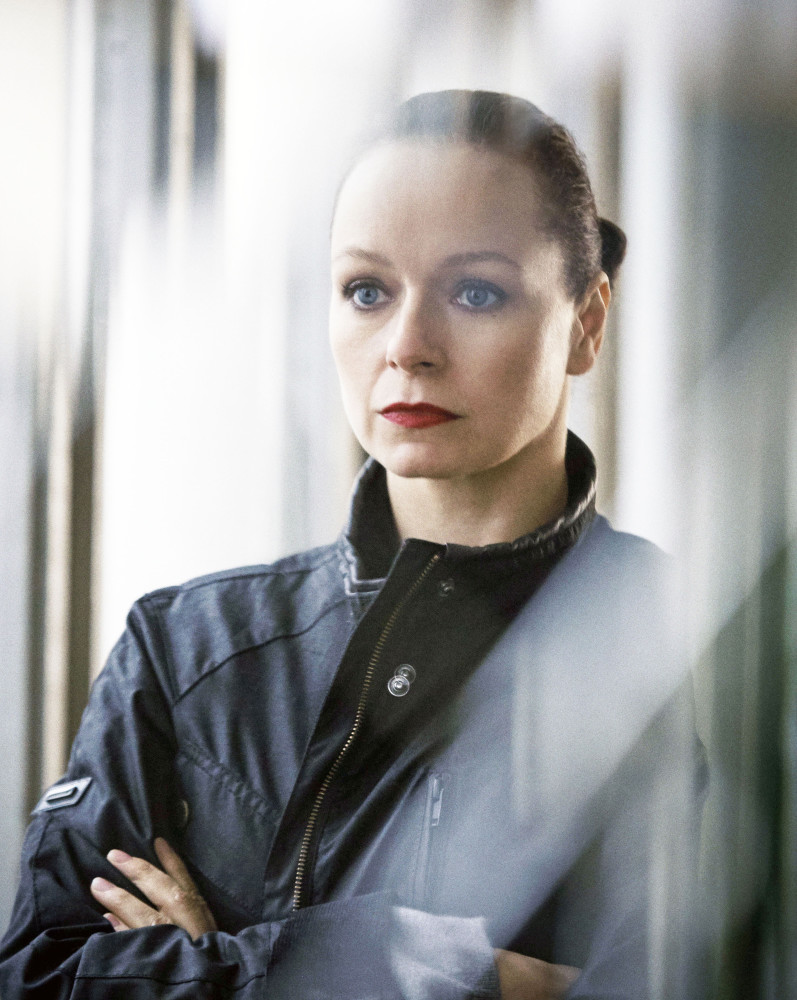By Luaine Lee
Tribune News Service
WWR Article (tl;dr) Academy Award nominated actress Samantha Morton’s story of survival is empowering women around the world. Trapped in a dysfunctional family, she grew up in 12 foster homes as well as some orphanages (which she calls “child care”) leaving school at 13. Today she is the story of success as a top actress in the film industry with a beautiful family at home.
PASADENA, Calif.
British actress Samantha Morton admits she’s plucky. “I was the type of child that if at school someone was being bullied, I’d go and get the bully,” she says over the din in a restaurant here.
“I was very forthright. I think the word is ‘fearless’ … I’ve always had no fear in regards to living; because there’s so much to be afraid of that you just have to let it all go,” she says.
Morton has a right to be fearless. Trapped in a dysfunctional family, she grew up in 12 foster homes as well as some orphanages (which she calls “child care”) leaving school at 13.
She didn’t quit school, she insists. “I just couldn’t GET to school. I was in social care, children’s homes and things like that. My school was two buses away and I’d try, and in the end, I just got fed up with missing the bus or not being able to get to school on time. I didn’t have the right clothes. I didn’t finish school,” he shakes her head.
“I suppose I was fearless as a little girl. Now I’m less so because when you start having children the fear comes in about the things you can’t control or handle,” she says, sipping a porcelain cup of tea.
Most people remember the round-faced actress as the winsome mute in Woody Allen’s “Sweet and Lowdown,” for which she earned an Academy Award nomination. She snagged another as the struggling Irish mother in “In America.” She’s played a variety of characters: from the timid Jane Eyre to the regal Mary Queen of Scots. And in her latest role, she’s a veteran private eye trailing a gang of cunning jewel thieves through Europe.
Morton says the part of Naomi in Sundance’s “The Last Panthers,” premiering April 13, is the most like her. “Because of what Naomi’s been through in the war, she is incredibly fearless as well. In a way, this role has been the most personal to me,” she says, “to play a soldier. My step-father and brother are both ex-military.”
Precocious and without family ties, Morton began working at 16. “I was so lucky, I’ve not stopped working,” she smiles.
“I did a few bit parts before that, and I did a lot of extra work because the guy that ran the workshop where I went, he used to get us extra work. It’s a world that I’m very comfortable in.”
Her childhood was not so comfortable. “I’m 38. In the late ’80s, early ’90s you would get what is referred to as an ‘education welfare officer.’ And when you’re in care, you just slip through the cracks. People don’t care, really.
“But I suppose if you’re from a normal family and all of a sudden you’re not on the register, they might notice something. But with me, no,” she shrugs.
“Life is like that. You have your ups and your downs. You make the right choices and sometimes you make the wrong choices. But you just have to follow your heart and make the best decision at that time, given all the information that you have.”
Morton, who lives in northern England, has a 16-year-old daughter from an earlier relationship, an 8-year-old daughter and a 23-month-old son with her fiance of 10 years, Harry Holm. Holm is a photographer and documentary filmmaker but right now, she says, he’s a stay-at-home-dad while she’s in L.A. for three days. “Superhero,” she dubs him.
Though she’s consistently worked, nine years ago she suffered an accident that almost ended her career. “A ceiling fell on my head. It was a beautiful old house with a new ceiling. It severed my artery so I had a stroke and was in hospital for a long time, and had to learn how to walk,” she says.
“Complete rehabilitation. That was pretty scary. When your mortality is in question it changes you forever in a really positive way. If you lost the ability to walk and don’t know if that’s going to come back in an intensive rehab hospital, it could go either way. And that could change your life forever. So I’m very grateful that I’m OK.”
How has she coped? “I think spirit counts for a lot,” she says. “You’re born with your soul, your spirit. I think also you can go two ways. When you see a lot of wrong around you when you’re little, and you have an internal moral compass that’s very strong, you can look at things and go, ‘I could go down that road, but I don’t like that road. I don’t want to do what those people have done.’ And a lot of the wrong I saw growing up was mainly due to mental health issues.”
She says she’s lucky that when she started at 16 she worked with dedicated actors who served as models for her. “Because you can’t learn your lines or turn up for work if you’re out ‘raving.’ I suppose I got that out of the way when I was very little in the children’s homes, those environments of being a little bit angry with the world. It was only for a few months. I think I see the world through rose-colored spectacles.”














































































































































































































































































































































































